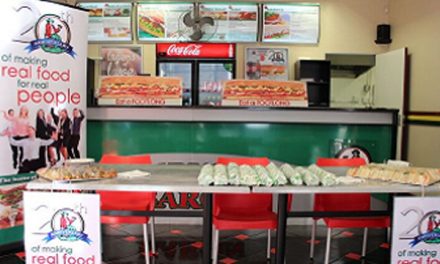FOR THE PAST FORTY YEARS that the Franchise Association of South Africa (FASA) has been in existence, it has had three main aims:
- To promote the globally-successful franchise business format to contribute to the economic growth of the country. When sanctions were biting hard, the franchise community rallied to sustain the sector by encouraging local entrepreneurs to start home-grown concepts – many today are global brands.
- To help grow the economy through franchising’s principle of duplication through the creation of small businesses, offering opportunities for people from all walks of life to acquire the skills to run their own businesses according to the tried-and-tested formula of franchising; and
- To contribute to skills development and more importantly to job creation through the successful franchise system.
According to Sanlam’s 2018 Franchise Survey there are around 860 franchise brands in South Africa and just over 41 000 franchised outlets, employing over 370 000 people. More importantly the industry contributes around 15.7% to the country’s GDP – to put that into perspective, according to Stats SA the following sectors contribute:
- Agriculture contributes around 3%
- Mining contributes around 8%
- Manufacturing 13%
- Construction 4% and so on…
According to the World Franchise Council’s Survey on the Economic Impact of Franchising Worldwide of 2017, South Africa emerges as one of the top five countries in the world in respect of economic output as a contribution to the country’s GDP.
“The management of FASA has had the privilege to attend presentations by the Ministry of Trade & Industry which outlined government’s intention to partner with the private sector to open doors to new business development” says Vera Valasis, Executive Director of FASA. “This has prompted the association to develop an industry master plan for economic growth that could see franchising making an impact on small business development through transformed ownership and through structured franchise formats that include social franchising, micro-franchising and rural development.
“So why do we get told by organs of government that franchising has a bad name in the corridors of government?“
The negative perception of franchising in government could stem from the fact that, on the surface, it seems that franchising is linked to international brands and is perceived as being the preserve of mostly white males. Fanchising is one of the most successful business models globally and the success of franchising in the local market is no different from the success of franchising in most other markets internationally.
While transformed ownership can be fast tracked to achieve better results, Sanlam’s franchise survey of 2018 indicates that no less than 28% of franchised businesses are owned by previously disadvantaged individuals of which 39% are owned by women. 88% of franchised businesses are home-grown brands, so royalties payments generated by franchised outlets are not largely repatriated to an international franchise owner somewhere in the world. Another misconception is that franchised brands are owned internationally and funds are taken offshore.
Despite government making funding available for the development of small business through the Jobs Fund, SEFA and others, black business owners have simply not yet managed to access funding to develop their businesses into successful franchised brands.
There also seems to be a perception that franchises are owned by unscrupulous and devious individuals who prey on the uninformed – this could be but in this regard the Association has been lobbying government since 2006 to have its Code of Ethics set down as an industry code, which would enable the establishment of a franchise ombudsman.
In the interim the Association’s franchisor members are the only franchise companies that have agreed to abide by the Association’s Code of Ethics and have had their documents vetted for compliance with the Consumer Protection Act’s Regulations. It has been educating potential franchisees since 1979 to only buy a franchise from an accredited member of the Association but far greater impact would be achieved by having an industry code that regulates the industry.
So what would it take to change government’s negative perception of franchising?
- Perhaps developing a learning culture which permeates government at all levels, would help to demystify the misperceptions linked to the franchise model instead of being critical of a successful business model simply based on hearsay and the opinions of others.
- Channelling funding to qualifying black business owners to develop their businesses into franchises by making use of tools and vehicles that are ethical and failsafe.
- Cleaning up inept departments of government like Services Seta so that levies paid by the franchise industry’s members can be used to establish meaningful transformation through industry focused training and development.
- Embracing the concept of social franchising – which has been proven over and over again right across the African continent – as it addresses all four of government’s key strategic focus areas i.e. transformed ownership, skills development, job creation and rural development at the same time also addressing the critical lack of service delivery.
The solutions are neither complicated nor unattainable – all that is needed is the political will to transform the lives of ordinary South Africans who are highly talented and innovative individuals.
Go to www.fasa.co.za






 Cauliflower Skewers with Pesto Drizzle
Cauliflower Skewers with Pesto Drizzle Lamb & Green Bean Bredie
Lamb & Green Bean Bredie Kerry Kilpin’s Pickled Fish Tacos
Kerry Kilpin’s Pickled Fish Tacos The Table Bay’s Ombré Chia Breakfast Sundae
The Table Bay’s Ombré Chia Breakfast Sundae Best gin Christmas cocktails
Best gin Christmas cocktails All Recipes
All Recipes











